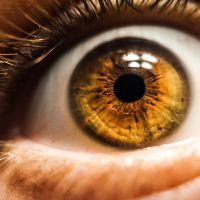Patients who are about to get laser eye surgery must undergo several tests before the procedure. These exams detect possible problems that might complicate the procedure. Eye specialist Dr. Millicent M. Grim explains.
If you’re getting laser eye surgery, expect to undergo a few tests before the actual procedure as well. These pre-surgery eye exams can help your specialist understand your condition better and create a more detailed treatment plan. The tests can also increase your safety during and after the procedure and provide better outcomes.
Common Pre-Laser Eye Surgery Tests
After a routine eye or vision test, you may have to undergo these additional tests:
1. Pupil Measurement
 Measuring the size of your pupil under low light helps your doctor evaluate the quality of your nighttime vision after your surgery.
Measuring the size of your pupil under low light helps your doctor evaluate the quality of your nighttime vision after your surgery.
Eye specialists use either light amplification or infrared technology to measure pupil size accurately in low light without the need to make them smaller through artificial means.
Once the result is out, your surgeon will determine if the laser treatment can cover your pupil adequately in low light so that you can have better night vision.
Additionally, this test is an important part of pre-laser surgery since some patients with larger pupils are sometimes at a higher risk for possible post-surgery side effects, such as glare and halos.
If your test shows you have unusually large pupils, your doctor will discuss this with you and include additional steps and instructions on your post-treatment plan to help you manage the possible side effects.
2. Corneal Topography and Tomography
The results from these eye tests are often significant factors in determining if a patient can benefit from laser eye surgery. The findings can also help your specialist plan a follow-up procedure for a better outcome if needed.
A topography test measures the curvature or shape of the front of the cornea. It provides information about the health of the cornea pre-and post-surgery.
On the other hand, a tomography test measures both the front and back surfaces of a cornea. Because of this, it can help detect keratoconus and other corneal conditions.
If keratoconus has been detected, the specialist would not recommend laser eye surgery since it would be unsafe for the patient.
3. Corneal Thickness Measurement
If you are undergoing LASIK (laser in-situ keratomileusis) surgery, your surgeon needs to create a corneal flap where the laser treatment will be performed.
Your doctor needs to be sure that your cornea is thick enough to allow the flap to heal properly and promote optimum vision correction post-surgery. The specialist needs to measure the thickness of corneas. With this test, your specialist will check the amount of correction needed and determine if your cornea is thick enough to handle the laser surgery.
If your cornea is thin or not thick enough for the surgery, your specialist will recommend that you consider PRK also known as photorefractive keratectomy.
This is a laser treatment similar to LASIK but performed on the cornea’s surface instead of under a flap of the cornea.
4. Dry Eye Exam

l i g h t p o e t/shutterstock
Dry eyes are a risk factor that can delay a patient’s recovery following laser eye surgery.
To check if you have dry eyes, the specialist will likely perform the Schirmer test or tear test. This is the most commonly used procedure.
The person conducting this test will place a small strip of paper on your lower eyelids and measure the amount of moisture it collects within the specified time.
If the test shows you have dry eyes, your specialist will likely treat this condition first before recommending you undergo surgery. They will prescribe lubricating eye drops, ointments, oral medications, or a combination of these three to treat your dry eyes.
Patients with dry eyes may also benefit from orthokeratology as an alternative treatment since the hard lenses won’t draw moisture from the eyes and aggravate this condition.
5. Eye Pressure Test
Before undergoing laser eye surgery, your surgeon also needs to know beforehand that you don’t have glaucoma. This is a condition in which the optic nerve damages over time, which can result in loss of vision.
The cause of this disease is eye pressure increase.
Your ophthalmologist will use a tonometer to check your eye or intraocular pressure. During the actual test, your doctor will put special numbing drops in your eyes and gently hold a pencil-shaped device against the outside of your eyeballs. The reading on the tonometer indicates the internal pressure of the eye.
Aside from a tonometer, your specialist can also use a device that blows a gentle, small puff of air at your eye while you look into a source of light. The reading shows the amount of pressure inside your eyeball.
You may feel a tiny amount of pressure against your eyes when air puffs into your eyes. However, both tests are relatively painless and last only for a few seconds.
If the results show that you have high intraocular pressure, your specialist will check if you have glaucoma and its severity. If glaucoma is still in the early stage or mild, you will start treatment to prevent progression. Glaucoma can result in the loss of the visual field over time. Laser vision correction will then be contra-indicated in this scenario.
Closing remarks
When your surgeon asks you to undergo these additional eye tests, you need to comply as soon as possible. These exams can help you stay safe during the procedure and get the best results post-surgery unless it proves inappropriate or risky to have the surgery done.
References
https://www.focusclinics.com/blog/what-eye-tests-are-needed-before-laser-eye-surgery
https://www.tylock.com/lasik-dallas/preop-exam/
https://www.verywellhealth.com/lasik-pretests-3421942
Who is the author?

Dr.Millicent M.Grim, Specialist Ophthalmologist & LASIK Specialist, is the Medical Director of the former Gulf Eye Center in Dubai. Since 2002, Gulf Eye Center’s highly qualified ophthalmologists and optometrists/ODs have been successfully treating a wide range of eye conditions using advanced techniques. They have recently moved to GULF EYE DOCTORS, and also provide comprehensive eye care and vision restoration procedures for people of all ages.



![women [longevity live]](https://longevitylive.com/wp-content/uploads/2020/01/photo-of-women-walking-down-the-street-1116984-100x100.jpg)










